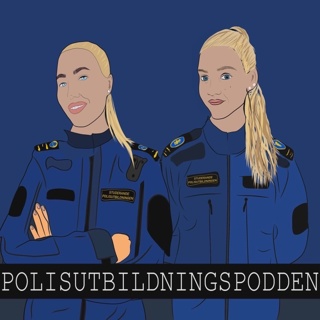
GET and GO
When do we use GET and when do we use GO? Let's find out how to use these two really important verbs in English!Improve your English at https://www.anglopod.com/Get the FREE EBOOK: https://anglopod.kit.com/ebookSubscribe to the PODCAST: https://anglopod.kit.com/podcast
5 Nov 3min

LISTEN and HEAR
What's the difference between LISTEN and HEAR? Many languages only use one verb, but in English we use two!Improve your English at https://www.anglopod.com/Get the FREE EBOOK: https://anglopod.kit.com/ebookSubscribe to the PODCAST: https://anglopod.kit.com/podcast
29 Okt 3min

BEGIN and START
When do we use BEGIN and when do we use START? What's the difference between these two verbs in English? Let's find out...Improve your English at https://www.anglopod.com/Get the FREE EBOOK: https://anglopod.kit.com/ebookSubscribe to the PODCAST: https://anglopod.kit.com/podcast
22 Okt 3min

LIKE and AS
The prepositions LIKE and AS are often confused, so how can we use them correctly in English? Find out here!Improve your English at https://www.anglopod.com/Get the FREE EBOOK: https://anglopod.kit.com/ebookSubscribe to the PODCAST: https://anglopod.kit.com/podcast
15 Okt 3min

DO and MAKE
When do we use DO and when do we use MAKE in English? Why are they so confusing? Find out more in this lesson!Improve your English at https://www.anglopod.com/Get the FREE EBOOK: https://anglopod.kit.com/ebookSubscribe to the PODCAST: https://anglopod.kit.com/podcast
8 Okt 3min

BEEN and GONE
What is the difference between BEEN and GONE in English? How do we use them with the present perfect tense?Improve your English at https://www.anglopod.com/Get the FREE EBOOK: https://anglopod.kit.com/ebookSubscribe to the PODCAST: https://anglopod.kit.com/podcast
1 Okt 3min

Future perfect simple and continuous
Improve your English today at ANGLOPOD.COM. Hi everyone, I’m Dan and today we’re going to learn about the future perfect tense, both simple and continuous. This might seem difficult, but really it’s quite easy. Let’s find out more…So far, we have learnt about the present perfect and the past perfect. Now we need to talk about the future perfect. Just to review, we use the present perfect to talk about a period of time in the past up to the present and we use the past perfect to talk about a period of time in the past up to another point in the past.The future perfect works in the same way. We use it to talk about a period of time up to a point in the future. Let’s see an example. “By midnight, I WILL HAVE FINISHED my homework”.So this period of time starts from now and finishes at a point in the future, in this example ‘by midnight’. My homework is not finished yet. I’m still doing my homework. I still have a lot of homework to do. But at some time between now and midnight, my homework will be complete. “By midnight, I WILL HAVE FINISHED my homework”.We can use the future perfect in the continuous form as well. We could say: “By midnight, I WILL HAVE BEEN STUDYING for hours”. This is a great way to show the continuous action of studying and also to emphasise how much I have been working. To make the future perfect simple, just use WILL with the auxiliary verb HAVE and the past participle, in this case FINISHED. To make the future perfect continuous, just use WILL with the auxiliary verb HAVE and then BEEN with the present participle of the main verb, in this case STUDYING.By next month, you WILL HAVE LEARNT a lot more English if you go to ANGLOPOD.COM. Good luck and see you soon!Learn more: https://www.anglopod.com
20 Aug 3min

WILL, GOING TO and present continuous
Improve your English today at ANGLOPOD.COM. Hi everyone, I’m Dan and today we’re going to look at how we talk about the future in English. In fact, that last sentence includes one of our examples, GOING TO. So how do we really talk about the future in English?The first thing to note is that English does not really have a future tense. We have a present tense, a past tense, and a perfect tense, but we don’t really have a future tense.What I mean is we don’t change the verbs in English to express the future as many other languages do. So we have to add other words to a verb to express the future. The most common words we use are WiLL and GOING TO, but we also use the present continuous when we want to talk about the future.Firstly, we use GOING TO a lot when talking about the future. I’m GOING TO do this, I’m GOING TO do that. This sounds like you’re sure, you have decided, you have made a plan. For example, “I’m GOING TO spend my holiday in Mexico this year”. So we use GOING TO for a plan or intention.However, we use the present continuous to talk about the future when there is a definite arrangement, for example: “I AM FLYING to Mexico next week”. This is an arrangement because you have bought a ticket. This is not just GOING TO happen, but it IS HAPPENING, so we use the present continuous in this case to talk about a future arrangement.As you can see in this example, the present continuous doesn’t really express the future, but the words ‘next week’. They are very important so we know when this thing is happening. So that’s why we don’t really have a future tense in English!Finally, let’s look at an example with WILL. A lot of people think that WILL is the future in English, but really the modal verb WILL is used to mean many different things and so it is overused by students when talking about the future.A lot of students say I WILL do this or I WILL do that, but really this is wrong. It sounds a bit strange. That’s why we use it with other words like MAYBE or PROBABLY. So for example: “Maybe I WILL do this”, “I WILL probably do that”.We tend to use WILL just to make predictions about the future or when we’re not sure about the future. We also use it when we’re still thinking about the future.So, now you know how to talk about the future, I hope you are GOING TO go to ANGLOPOD.COM to practise your English. Good luck and see you soon!Learn more: https://www.anglopod.com
13 Aug 4min





















